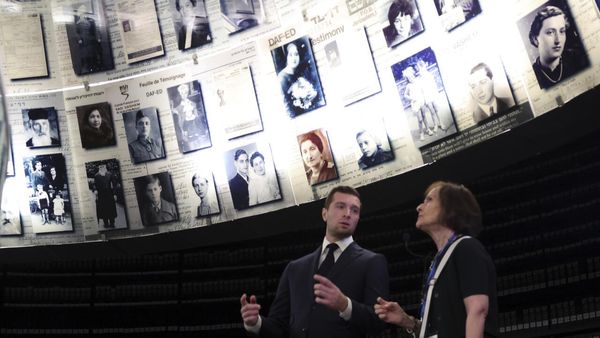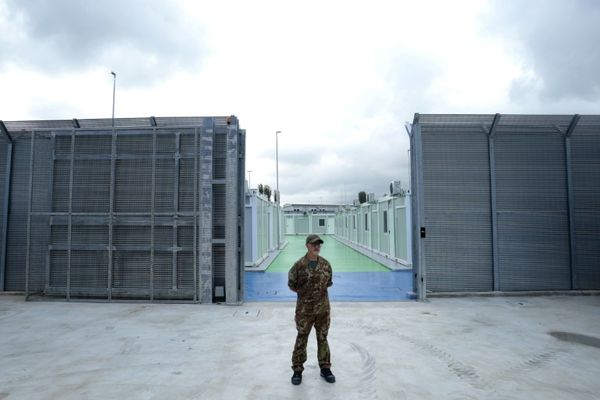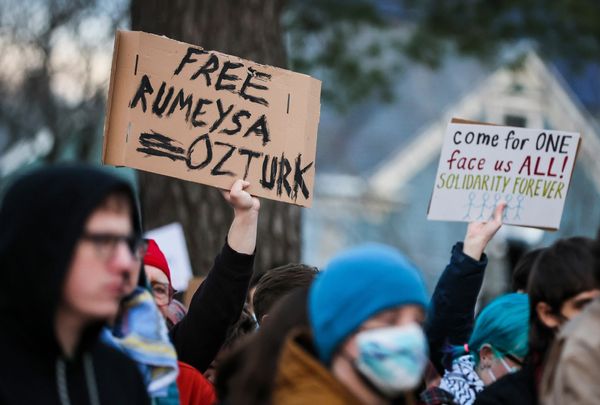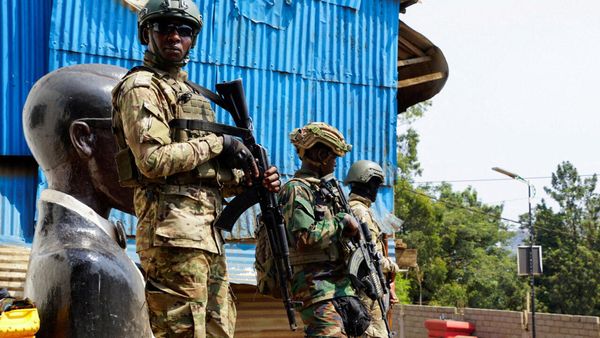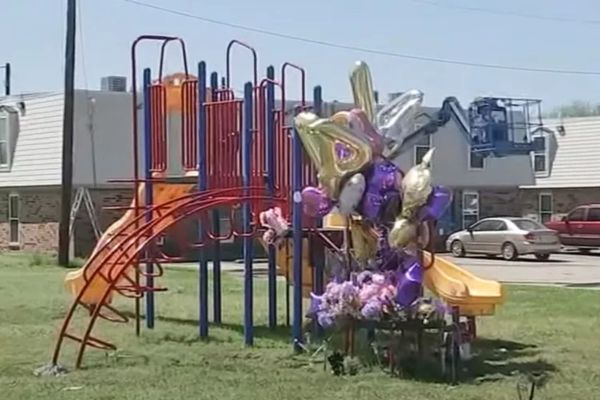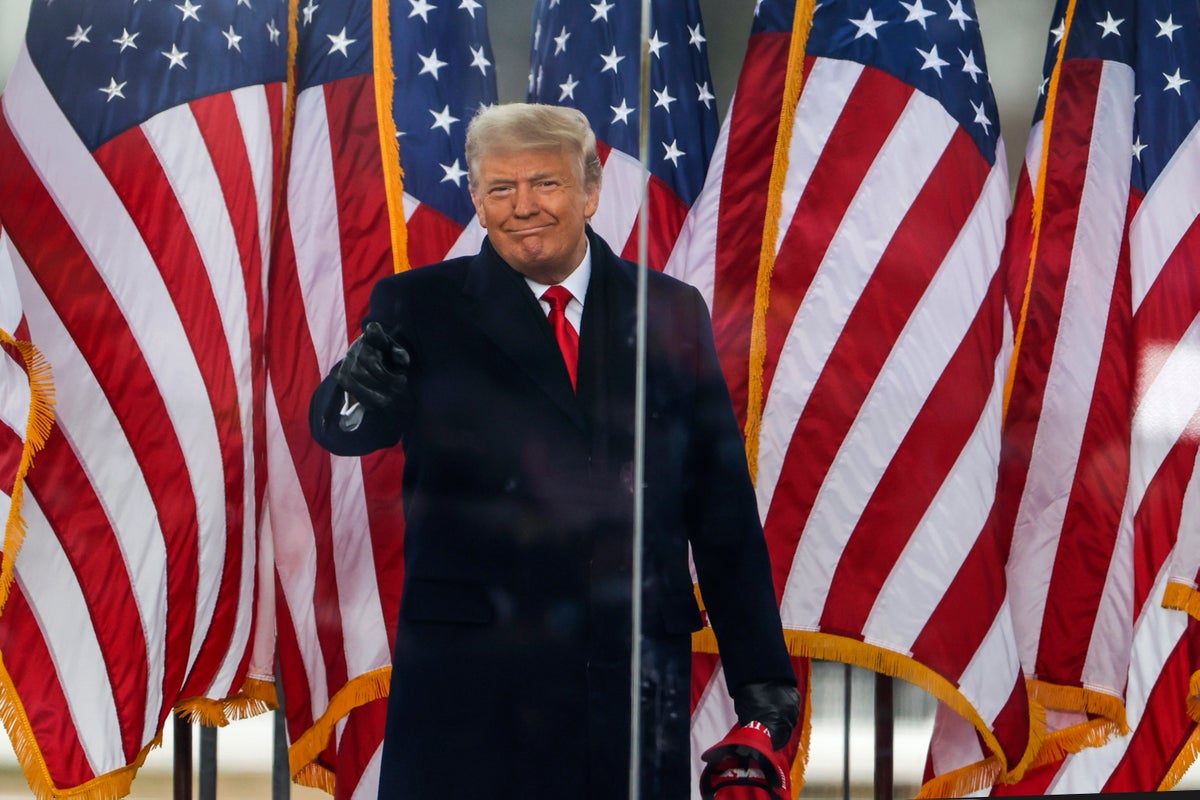
Federal prosecutors have given notice that they plan to introduce evidence of former president Donald Trump’s embrace of and support for charged and convicted January 6 rioters as a way to demonstrate what he intended to happen when a riotous mob of his supporters stormed the US Capitol to prevent certification of his 2020 election loss.
In a court document filed on Tuesday, prosecutors working under special counsel Jack Smith said that some of the evidence they intend to present is from before or after the criminal conspiracy in which the ex-president is charged with participating, but stressed that the evidence is admissible under rules allowing the government to use it to “establish his motive, intent, preparation, knowledge, absence of mistake, and common plan”.
In particular, prosecutors say they will use evidence that predates the alleged conspiracy at issue to demonstrate Mr Trump’s “encouragement of violence,” including his now-infamous exhortation to the extremist group known as the Proud Boys that they should “stand back and stand by” during his 29 September 2020 debate with now-president Joe Biden.
“Members of the group embraced the defendant’s words as an endorsement and printed merchandise with them as a rallying cry ... after the Proud Boys and other extremist groups participated in obstructing the congressional certification on January 6, the defendant made clear that they were acting consistent with his intent and direction in doing so,” prosecutors said.
Additionally, prosecutors said they are intent on presenting what they describe as “post-conspiracy evidence” of Mr Trump’s “steadfast support and encouragement of” the people who stormed the Capitol on his behalf nearly three years ago.
Specifically, they plan to present evidence showing how Mr Trump has “openly and proudly supported individuals who criminally participated in obstructing the congressional certification” — including his numerous suggestions about pardoning many convicted rioters should he be returned to the White House after next year’s presidential election.
One of those convicted criminals who prosecutors highlight in their filing is Enrique Tarrio, the ex-Proud Boys leader who in September was sentenced to 22 years in prison following his conviction on seditious conspiracy charges earlier in the year.
The prosecutors note that during his September appearance on NBC News’ Meet the Press programme, Mr Trump said Mr Tarrio “and other people have been treated horribly”.
They also said they plan to highlight the ex-president’s embrace of the so-called “January 6 Choir,” a group of pre-trial detainees who allegedly participated in the riot and who are held in the District of Columbia jail pending trial because their “criminal history and/or crimes on January 6 were so violent that their pretrial release would pose a danger to the public”.
Mr Trump, prosecutors said, has “nonetheless ... financially supported and celebrated these offenders – many of whom assaulted law enforcement on January 6 – by promoting and playing their recording of the National Anthem at political rallies and calling them ‘hostages’”.
Continuing, the special counsel’s office attorneys said the evidence showing Mr Trump’s “post-conspiracy embrace of particularly violent and notorious rioters is admissible to establish the defendant’s motive and intent on January 6 – that he sent supporters, including groups like the Proud Boys, whom he knew were angry, and whom he now calls ‘patriots,’ to the Capitol to achieve the criminal objective of obstructing the congressional certification”.
“In addition, his statements in this time period agreeing that he then held, and still holds, enormous influence over his supporters’ actions is evidence of his knowledge and intent to obstruct the certification, as he chose not to exercise that influence to mitigate the violence on January 6,” they wrote, adding later that Mr Trump’s “embrace of January 6 rioters” shows his intent to disrupt certification of his 2020 election loss that day “because it shows that these individuals acted as he directed them to act”.
”Indeed, this evidence shows that the rioters’ disruption of the certification proceeding is exactly what the defendant intended on January 6,” they continued before closing their filing with a note that the evidence of Mr Trump’s statements about pardoning January 6 rioters can be used to help the jury in his upcoming trial “assess the credibility and motives of trial witnesses” because Mr Trump “is publicly signaling that the law does not apply to those who act at his urging regardless of the legality of their actions”.
The ex-president is scheduled to go on trial in Washington DC starting in March 2024.
